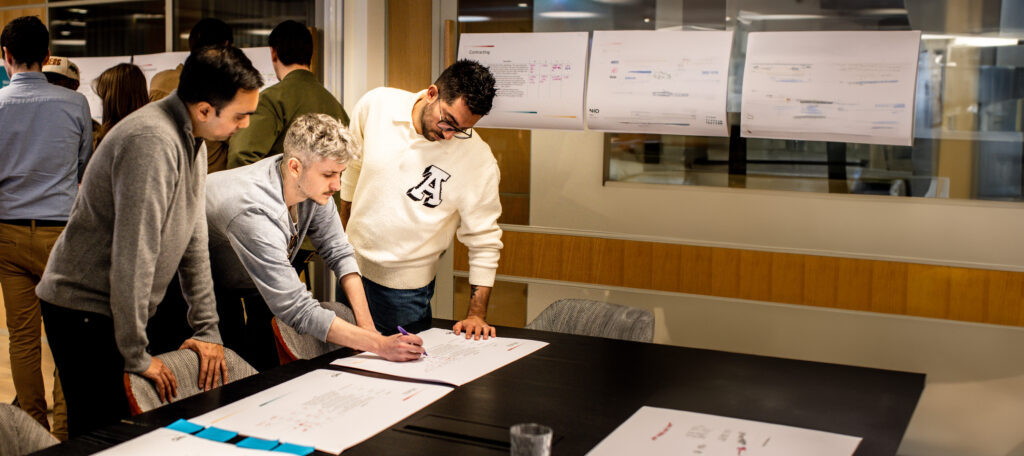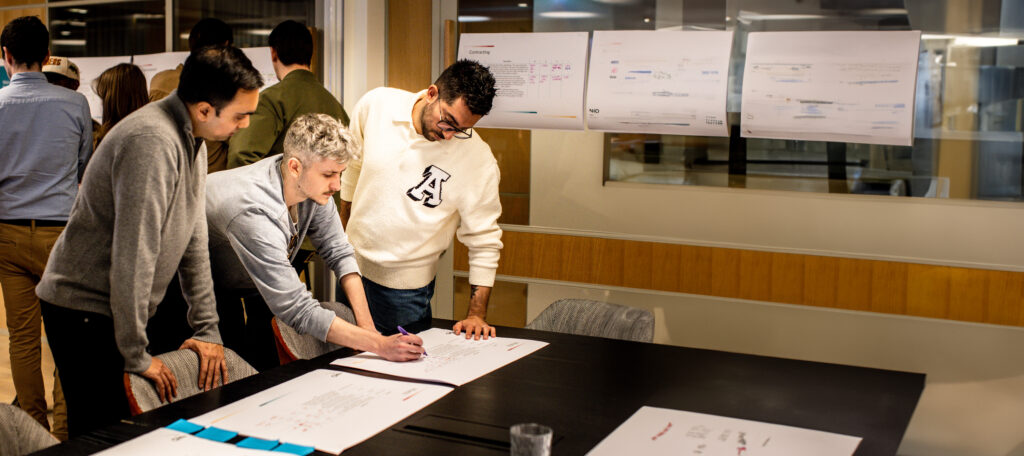As organisations continue to adapt and evolve in a constantly changing business landscape, learning and development (L&D) plays a crucial role in equipping employees with the skills to thrive. So what are some of the trends for businesses to look out for in the new year and beyond?
Some of these trends are already well underway, while others are just starting to gain traction. All of them have the potential to revolutionise learning and skills training and how we develop our existing skills.
Here are our top four picks for learning and development trends organisations can expect to see in the future of work:
The power of blended learning
Blended learning is a diverse range of in-person training and online activities that enables employees to unlock their full potential.
According to a 2023 McKinsey and Company study on L&D trends, ‘corporate learning needs a revolutionary makeover to keep up with today’s rapid technological advances’. As well as updating training content, companies should increase their focus on blended learning solutions if they want to increase learner retention, improve ROI, increase training flexibility for their people, and more.
NKD’s blended learning programmes combine in-person and digital experiences to provide a personalised and scalable programme for your teams. It ensures that content, tools and activities meet the needs of your learners. It particularly suits deskless workers as they can more easily fit this type of training into their work schedules and focus on it at a time that works for them.
The need for continuous learning and upskilling
Continuous learning is about developing new skills and knowledge, while also reinforcing what has been previously learned. Whereas upskilling is the process of elevating existing skills to the next level. Typically, upskilling happens along a set career path, giving employees clear opportunities to grow as they level up their skills.
As the skills gap in the workplace continues to evolve and grow, many organisations recognise the importance of continuous learning and upskilling. For many organisations, talent shortages, combined with the impact of COVID-19 on workforce planning, has seen a push in businesses upskilling their teams, identifying this as a key driver of growth and competitiveness. And the workforce are ready to upskill – with 77% of global workers declaring they want learning and skills training to develop their skillsets. These factors signify that a continuous learning approach is critical to driving growth and building resilience in the future of work.

But, for continuous learning to be successful, organisations should support their people with the opportunity and tools required to learn and develop their knowledge over time and continuously. When this is achieved, both organisations and the workforce can reap the benefits of continuous learning and upskilling.
Investing in leadership development and training
There are many ways people describe leadership development. But in short, leadership development is a set of activities that prepare current and future leaders to perform effectively in their roles.
These are the people who manage and lead your business, and they play a key role in the way your business operates. Not only are they responsible for the financial success of your business, but the actions that they take can affect things like efficiency, employee morale, and the overall reputation of your company. With 47% of employees ranking bad management as their top reason for wanting to quit their job, inspiring leaders that are attuned to their people have never been more critical. Truly great leaders are those that can transform teams, create and manage effective processes, and help their employees grow. But to ensure that new and existing leaders have the knowledge and skills to do all of these things, they require leadership development and training.

At NKD, we partner with you to transform your leadership teams through human-centred leadership development programmes. From C-Suite teams to frontline supervisors, we create engagement programmes that meet your people and your business needs. Our solutions quickly and visibly shift how your leaders think and behave, empowering them to lead in new and inclusive ways.
The rise of micro-learning and mobile learning
Another emerging future of learning trend to watch out for is micro learning and mobile learning. With deskless workers now making up 70% of the global workforce, traditional in-person training sessions are becoming less feasible. Most of this deskless workforce now prefers on-demand, bite sized learning modules that seamlessly integrate into their busy workflows – and this trend flows through to desk-based workers too. Microlearning involves breaking down complex topics into small, digestible modules. These short training segments can be completed within minutes, catering to people’s busy work schedules and preferences.
The rise of mobile technology has also transformed how learners consume information – these short modules are easily accessible through mobile devices, mobile learning platforms, and learning apps. Mobile learning is constantly evolving offering even more personalised recommendations and gamified elements to make learning more engaging and something people actually want to take part in.
With the range of new technologies and our changing workforces, it pays to keep in touch with the latest learning and development trends to help your people develop and stay ahead of the curve.
For more content around learning and skills training, click here. Or, if you want to have a chat with one of the team about how we can support your organisations, click here.
